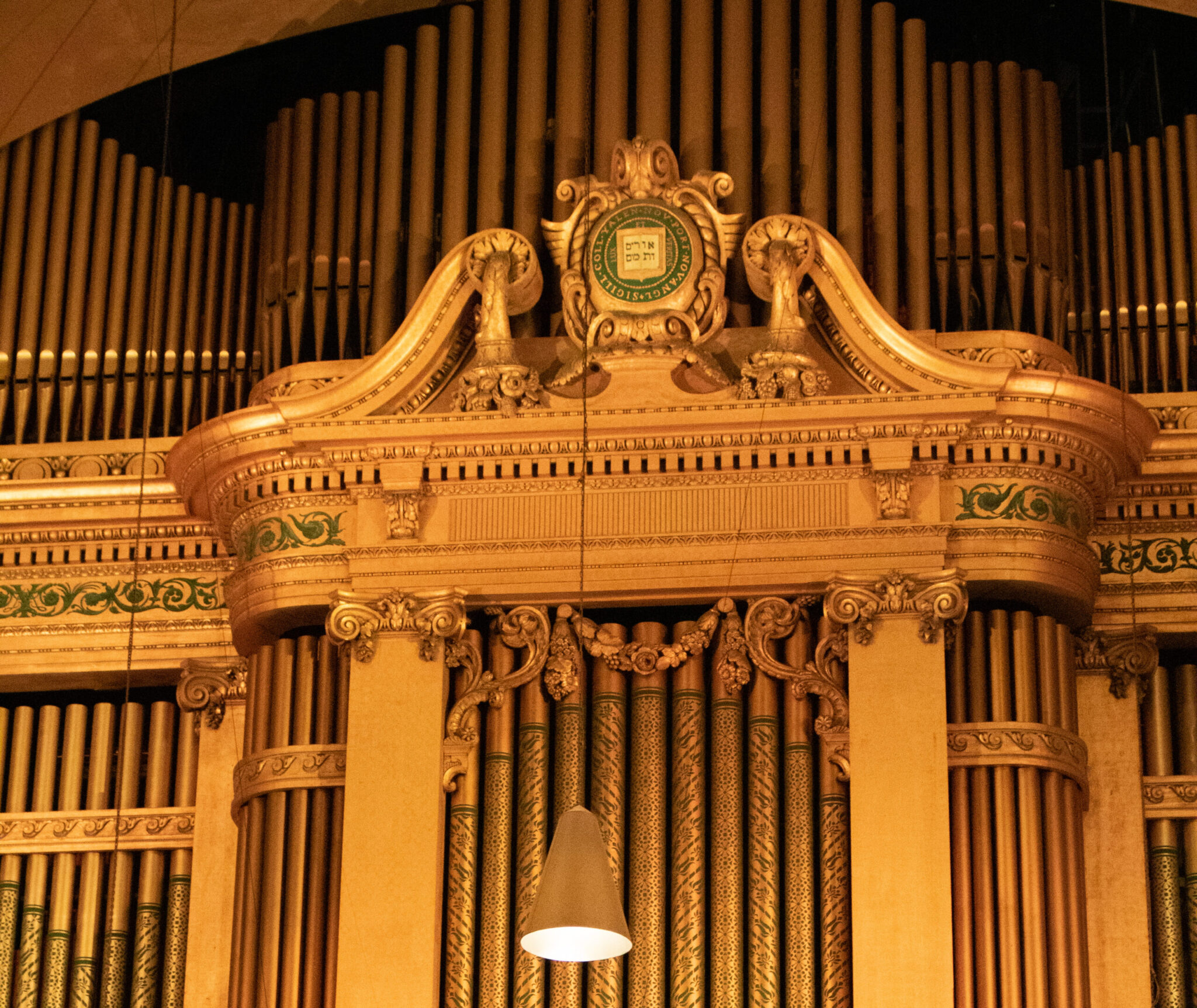New Haven Symphony Orchestra features string trio Time for Three
The New Haven Symphony Orchestra welcomed Grammy-winning Time for Three in a concert that featured multi-genre music.

Gavin Guerrette, Senior Photographer
The New Haven Symphony Orchestra presented a night of genre-bending music at Yale’s Woolsey Hall, welcoming Grammy-winning string trio Time for Three in a joint concert on Oct. 26. The performance would also include a rendition of Aaron Copland’s “Suite from Appalachian Spring” and Putlizer-winning composer Kevin Puts’s “Contact.”
Before the orchestra played any music, director Alasdair Neale presented an overview of the night, which would showcase music “from the heart” with “little artifice.”
The concert work began with a meditative drone tone played by the strings that gave way for a notable clarinet solo. According to the Los Angeles Philharmonic, Copland’s “Suite from Appalachian Spring” is considered one of the composer’s “populist” American works created during the Great Depression and world wars. Based on Copland’s “Appalachian Spring” ballet, the suite follows a similar storyline, which, according to the Martha Graham company, depicts a “young frontier couple on their wedding day.”
Neale is no stranger to the intricacies of this suite.
“Appalachian Spring is a piece that I have always been incredibly fond of since I encountered it as a teenager in the United Kingdom. I know it from many different angles,” Neale said. “I played the flute in orchestra and the cello in the original chamber version — and conducting it has been essential to my repertoire. As an example of classic, American-sounding music from the middle of last century, that was one of the paradigms.”
Neale first encountered Time for Three at a music festival in Sun Valley, and after being enamored by them, felt an urge to feature them with the New Haven Symphony. He mentioned that he wasn’t sure if the audience members knew what they were going to witness and experience.
Neale emphasized that while both works are different, they both “connect with the broad public very genuinely and beautifully.”
Time for Three, the winner of the 2023 Grammy Award for Best Classical Instrumental Solo, is composed of Nicholas Kendall on the violin, Charles Yang on the violin and Ranaan Meyer on the double bass. According to National Public Radio, the original Time for Three trio — featuring Zachary DePue at the time on violin instead of Charles Yang — met at the Curtis Institute of Music.
Their compositions “swing wildly between pop, bluegrass and jazz,” according to the NPR website.
“Contact” opened up with an acapella melody sung by members of Time for Three, a new sonic texture compared to the instrumentals in the Copland.
Kevin Puts’ “Contact” is a four-movement work written for Time for Three. According to Puts’ own program notes for the piece, Puts decided to collaborate with Time for Three after watching their performance of Vertigo and noting their similar musical styles.
While Puts decided to experiment with adding a capella to a quintessential concerto, after working on it with Time for Three more over the pandemic, they decided that the work they created, originally dubbed the Triple Concerto, had “abstract musical expression going on” and that “there was a story being told,” the program notes stated.
The name “Contact” is derived primarily from the tonalities in all movements of the piece.
“Could the refrain at the opening of the concerto be a message sent into space, a call to intelligent life across the vast distances containing clues to our DNA, to our very nature as Earth people? Could the Morse code-like rhythms of the scherzo suggest radio transmissions, wave signals, etc.?” the program notes continued, explaining his thought process and intentions behind the piece.
Following “Contact,” Time for Three and New Haven Symphony presented several shorter selections. First, they performed Time for Three’s own “Vertigo” song, followed by Ben King’s “Stand by Me,” in which Time for Three told the audience to sing and dance along and then an arrangement of Monti’s “Czardas.” Their renditions yielded a long, standing ovation from the audience.
The musicians in the New Haven Symphony Orchestra viewed the collaboration between the New Haven Symphony Orchestra and Time for Three positively. For Oliver Leitner, a violinist in the New Haven Symphony Orchestra, the concert was “fun” and “refreshing.”
“In a way I was just very glad that we programmed something like this that was so different and refreshing,” Leitner said. “[It is] music that is harmonically different than what we normally do, and connects with the audience.”
The New Haven Symphony Orchestra, founded in 1984, is the fourth oldest orchestra in the United States.







